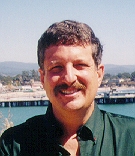
Because WRAD (World Recreation Association of the Deaf) is a household word in the deaf community, it is taken for granted by everyone.
Why is WRAD so important and why is it so synonymous with Bruce Gross? Let us backtrack -from the late forties through the early eighties, a span that covers five decades, the deaf community evolved into a vibrant force. The National Association of the Deaf and its state associations, have helped the deaf become politically aware and politically active. The National Fraternal Society of the Deaf has helped the deaf expand its fraternal roots everywhere. The National Congress of Jewish Deaf (as well as other organizations serving the deaf of other religious faiths) have helped the deaf foster their own religious ties. The American Athletic Association of the Deaf has helped channel the athletic activities of the deaf on the local, national and international levels.
In fact, the more we think about it, there is just about every organization, big and small, local and national, that caters to the specialized needs of the deaf.
Only one thing was missing – not every deaf person is athletically active; many deaf people get recreationally involved – swimming, hiking, long walks, boating, fishing, bicycling, jogging, camping, etc. The WRAD has neatly filled in the recreational needs of the deaf, with much thanks to vision and driving force exhibited by Bruce.
The origins of the WRAD began with the Southern California Recreation Association of the Deaf (SCRAD) in 1985. The first SCRAD event was staged to fulfill a mission – to raise funds for swimmer Reed Gershwind, CSUN’s record-breaking All-American, to participate in the World Games for the Deaf. The event – a racquetball social, became hugely successful, leading the way to more diverse and more exciting events staged in the future. Just almost overnight, the popularity of SCRAD led to formation of WRAD, which in turn established chapters in Orange County, Los Angeles, San Diego, and then later at Northern California, and New York as well as other parts of USA.
The WRAD, as its name implies, now has chapters in Great Britain, France, Germany, Turkey and South Africa. Each chapter organizes their own activities according to their preferences. No two chapters are alike, but they share one common trait – their love for recreation.
What makes Bruce tick? Is WRAD his full time job? No, it isn’t. Bruce, a native New Yorker and a Gallaudet graduate, has made Southern California his permanent roots. He holds down a full time job as the Technology Teacher Leader in the Los Angeles County Office of Education, helping the teachers to treat computers as a friend instead of as an enemy – in other words, helping become computer literate. He is also an Itinerant Teacher of the deaf and the hard of hearing, serving the deaf, the hard of hearing and the non-verbal hearing throughout the Antelope Valley. His clientele consists of 40 students, spread across 15 schools. Before assuming his present positions he was a Special Day class teacher for 23 years.
Is Bruce going to retire? “I have no plans of retiring because I enjoy my profession so much,” said Bruce. What about leisure hours? Bruce enjoys outdoor activities long walks at national parks, chasing balls on the racquetball court, and just socializing with new friends all over the world and entertaining them when they are in town.
A goal Bruce has is for a full time WRAD home office. In the meantime he is trying to expand the WRAD website, and also pushing for growth of WRAD in new territories. And also for the WRAD to spread its influence not just in recreation but also in educational and cultural activities.
The World Recreation Association of the Deaf, and its chapters all across the globe, is one of the fastest growing organizations as well as one of the most popular ones around. The beauty of the WRAD is that one does not have to be young to be a member. The WRAD serves individuals in all age groups. Within the WRAD there’s always a special interest group that serves some members whose interests are different.




